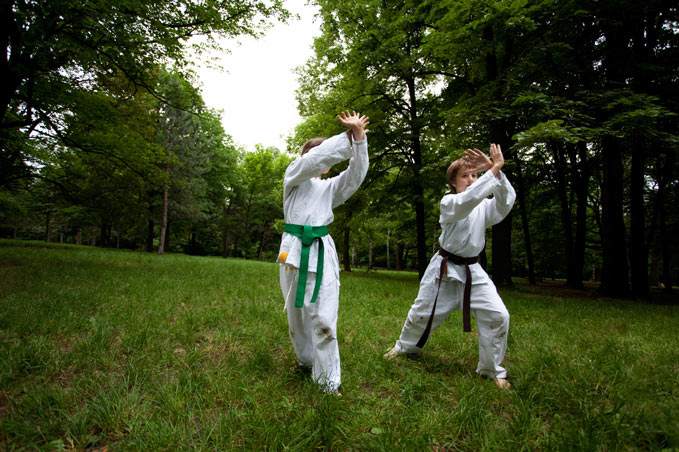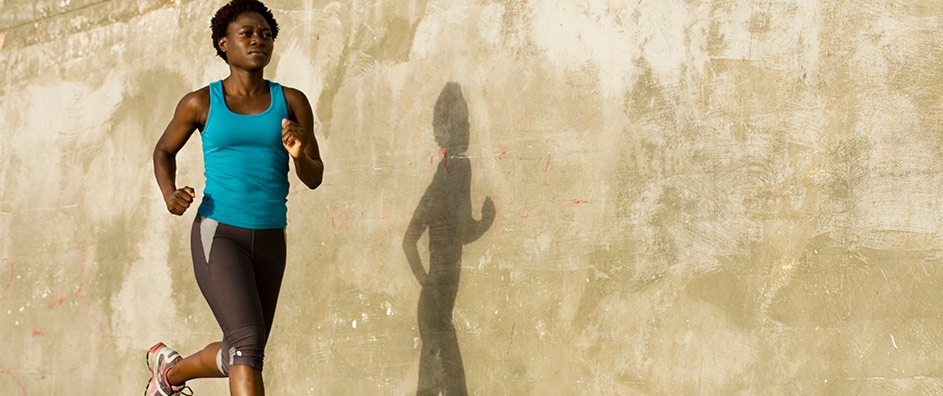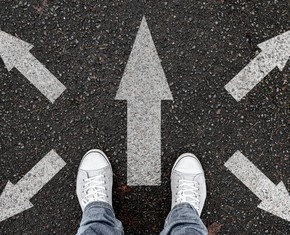The views expressed in our content reflect individual perspectives and do not represent the authoritative views of the Baha'i Faith.
The bounty of good health is the greatest of all gifts. — Selections from the Writings of Abdu’l-Baha, p. 151.
A well-balanced and healthy life requires exercise—both physical and spiritual.
 Since childhood, I’ve participated in sports. My parents sent my brother and I to gymnastics at a very young age, and soon after that we switched to martial arts, which we pursued for many years. We trained in several styles of martial arts, in fact. Then, around the time I began college I transitioned to weight training—partly due to time constraints, at first, but also to my interest in starting something new—and have remained involved in it since. I regularly lift weights with my father and even work out with the rest of my family.
Since childhood, I’ve participated in sports. My parents sent my brother and I to gymnastics at a very young age, and soon after that we switched to martial arts, which we pursued for many years. We trained in several styles of martial arts, in fact. Then, around the time I began college I transitioned to weight training—partly due to time constraints, at first, but also to my interest in starting something new—and have remained involved in it since. I regularly lift weights with my father and even work out with the rest of my family.
Today we humans are more inactive than ever—and we’re witnessing a pandemic of morbid obesity, of widespread inactivity, of increased incidence of type 2 diabetes (termed “adult-onset diabetes” but increasingly diagnosed in children), of addiction to junk foods, of fad diets and of eating disorders. According to the Centers for Disease Control, the percentage of overweight or obese adults, age twenty and over, was a whopping 69% in the United States in 2011–2012. Other developed countries report rising percentages, too. While inactivity plays a part in such trends, so does overindulgence. Because of these public health risks, staying physically active and eating in a healthy way has become even more important.
Certainly some people face genetic and other unavoidable conditions, but most of us can avoid many unhealthy and obese consequences with healthy diets and adequate exercise.
The trends today remind some historians of the decadent times in the days of the Roman Empire. Shoghi Effendi, the Guardian of the Baha’i Faith, has drawn parallels between the decline of the Roman Empire and the decline of our civilization. Just think, for instance, of the gourmandizing, massively obese Roman emperors who were engrossed in their own unhealthy eating habits. Then and now, we can see that overindulgence characterizes materialistic societies, marked by an exaggeration and over-emphasis on the material things in life—which leads to great harm, unhappiness, and disease in society.
Did you know that healthy exercise is a Baha’i principle, and, ideally, part of the Baha’i lifestyle?
Abdu’l-Baha said that the Baha’is should try to distinguish themselves “in every kind of excellence” compared to the rest of the world—including spiritually and physically:
Experience hath shown how greatly the renouncing of smoking, of intoxicating drink, and of opium, conduceth to health and vigour, to the expansion and keenness of the mind and to bodily strength. There is today a people who strictly avoid tobacco, intoxicating liquor and opium. This people is far and away superior to the others, for strength and physical courage, for health, beauty and comeliness. A single one of their men can stand up to ten men of another tribe. …
Make ye then a mighty effort, that the purity and sanctity which, above all else, are cherished by ‘Abdu’l-Bahá, shall distinguish the people of Bahá; that in every kind of excellence the people of God shall surpass all other human beings; that both outwardly and inwardly they shall prove superior to the rest; that for purity, immaculacy, refinement, and the preservation of health, they shall be leaders in the vanguard of those who know. – Selections from the Writings of Abdu’l-Baha, p. 150.
So Baha’is not only strive after spiritual distinction, but also distinction in other areas of life, such as in leading a physically healthy lifestyle.
But this raises a question: if spiritual development is the real purpose of this life, then why is physical health important? Apart from the obvious benefits of increased strength and endurance, exercise has been shown by science to have many other benefits, such as enhancing memory.
We all should strive for physical health in order to have a balanced and happy life, especially in this age of overindulgence and unhealthy behaviors. Although just a physical activity, exercise can have positive effects intellectually, morally, etc., and makes for a joyful, spiritual life. So whether you run or lift weights or play a team sport or just go for a healthy walk each day, get some exercise for your body and your soul.
You May Also Like
Comments

















Moreover in exercising, the student gets animated, his blood is purified and consequently his mind becomes more apt to receive the ideas and thoughts found in his lessons. The health which he acquires will help him to work harder ...and he becomes more successful. A weak person seldom can endure the hardship of school-life, the trouble of memorizing and persevering in his daily lessons. Lastly when a student is busy with athletics during recess time his ideas do not deviate any more to the path of impurity, to think of such trivial things and the health and strength which he acquires will help him in overcoming such temptations. Generally a healthy person is endowed with a will stronger than that of a weak person.
We see therefore that athletics ameliorate the condition of a person during all his college course.
Sports, in general, have had an important and estimable function in life and will inevitably in future be regarded as the indispensable factor for intellectual and moral growth." (Shoghi Effendi, The Students’ Union Gazette, pages 28-30 American University of Beirut, 1914-15)